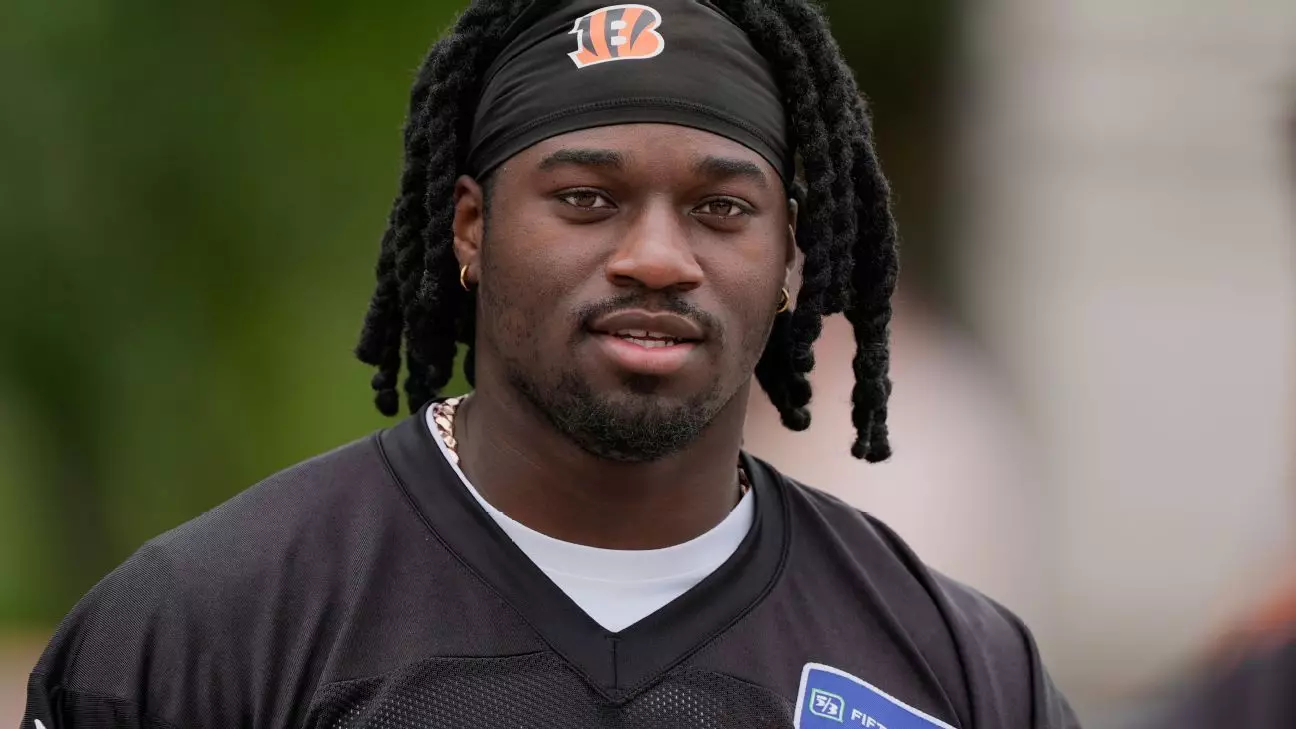The recent saga of Shemar Stewart’s rookie contract with the Cincinnati Bengals sheds light on a critical power struggle occurring beneath the surface of NFL negotiations. While fans are often captivated by on-field performances, the behind-the-scenes contractual battles reveal a much different dynamic—one rooted in control, risk management, and the negotiation of futures. Stewart’s delay in signing and his initial absence from training camp underscore the high-stakes tension between young talent eager to secure their financial future and franchises meticulously protecting their investments.
The Bengals, like many teams, pursued a strategy that involves inserting restricted language—such as the infamous void or “non-guarantee” clauses—that ostensibly grants teams leverage in extraordinary circumstances. These contractual provisions are more than mere legal nuances; they symbolize the broader power imbalance between seasoned organizations and green rookies. Cincinnati’s deliberate inclusion of such language underscores their desire to mitigate potential liabilities, especially in an era where player behavior, injuries, or disciplinary issues can heavily influence contractual obligations. Yet, for Stewart, this language posed a threat to the certainty of his guaranteed earnings, prompting a standoff that delayed his debut and possibly affected his morale.
It’s critical to recognize that this pattern isn’t isolated. Stewart’s stand-off mirrors historic disputes like Roquan Smith’s in 2018, suggesting an emerging trend where rookie athletes are increasingly pushback against terms that could diminish their earning potential. These negotiations aren’t just about dollars—they reflect an ongoing power contest that defines the balance of control between franchises and players. Young athletes are now more aware of their leverage and are willing to challenge contractual norms to protect their interests, hinting at a seismic shift in the NFL’s bargaining landscape.
Rookie Disputes as a Microcosm of Player Empowerment
Stewart’s case highlights an often-overlooked aspect of professional sports: player empowerment. Historically, NFL rookies had little say in their contracts, accepting terms dictated by franchise experts with little room for negotiation. Today’s era, however, fosters a competitive environment where athletic talent alone isn’t enough; young players recognize their value and are prepared to hold firm.
The fact that Stewart was willing to delay his start for a better deal demonstrates a newfound confidence among rookies, challenging the old narrative of submissiveness. His stance not only influenced his personal financial outcome—receiving a more lucrative payout structure for accepting the new language—but also sends a message to other young players: stand your ground, ask questions, and don’t settle for contractual terms that may jeopardize your future.
Moreover, this confrontation underscores an important shift: players are no longer passive commodities. Their willingness to challenge controversial clauses signals a maturing league where athlete advocacy begins to reshape franchise strategies. The NFL, once a league where rookies were expected to accept whatever was handed to them, now faces a new reality where contractual transparency and fairness are becoming more central to the negotiation process.
Franchise Strategies and the Value of Control
From the Bengals’ perspective, the inclusion of void language reflects pragmatic risk management. Owner Mike Brown’s comments reveal genuine concern about the unpredictability of player conduct and the importance of safeguarding the franchise’s assets. By stipulating such conditions—even at the expense of delayed rookie integration—the Bengals aim to establish a contractual framework that empowers them to react decisively if a player’s behavior warrants it.
This approach—while controversial—reveals a broader trend among NFL teams to cement their control over rookie contracts. Inserting clauses that allow for renegotiation or the voiding of guarantees represents a tactical move to hedge against potential liabilities, a testament to the league’s inherently high-risk environment. The fact that Cincinnati’s other draft picks signed swiftly underscores how crucial such terms are in their bargaining strategy; they’re setting a tone of cautious control rather than blind acquiescence.
Yet, this strategy may come at a cost. Delays and disputes can create lingering tensions that impact team chemistry and player morale. As Stewart’s case demonstrates, young players are increasingly aware of—and willing to challenge—such control mechanisms. The league might need to reevaluate how contractual power is balanced to ensure that future rookies aren’t disillusioned or alienated by overly rigid stipulations.
Implications for the Future: A Transforming NFL Landscape
The ongoing disputes over rookie contracts signal a broader evolution within the NFL industry. As players become more assertive and organizations adopt more sophisticated legal protections, the league is entering a phase of contractual diplomacy—balancing athlete rights and franchise interests. These negotiations are a microcosm of a larger cultural shift, where transparency, fairness, and athlete empowerment are gaining prominence.
While the NFL’s contractual landscape remains complex and often opaque to the casual observer, Stewart’s case exemplifies that negotiations are no longer just about dollars—they’re about dignity, control, and setting precedent. Young players like Stewart are paving the way for a future where rookie contracts are negotiated more equitably, fostering a league where talent and negotiation power are aligned.
In this evolving environment, the league must critically reflect on how to maintain competitive balance, ensure player satisfaction, and uphold the integrity of its business practices. One thing is clear: the dynamics of NFL rookie contracts will continue to be a battlefield for control—shaping careers and defining the league’s future for years to come.


Leave a Reply